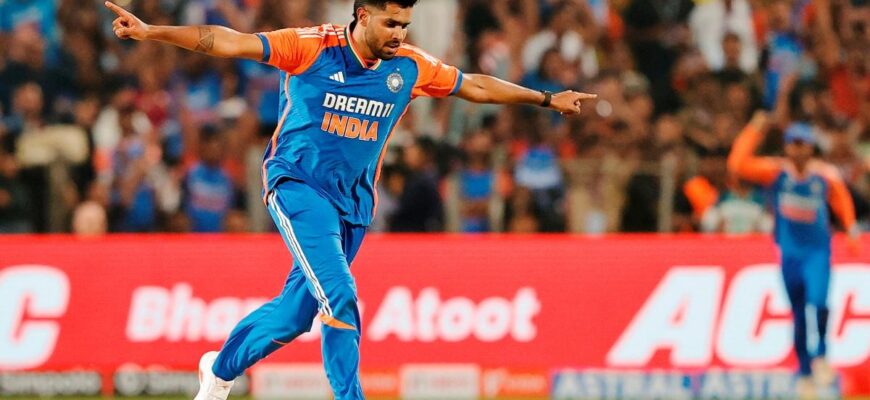In the high-stakes arena of professional cricket, scrutiny is as inherent to the game as bat and ball. Every performance is dissected, every selection debated. Yet, a recent incident involving young pacer Harshit Rana and the subsequent impassioned defense by cricketing stalwarts Gautam Gambhir and Ravichandran Ashwin has cast a much-needed spotlight on where the line between legitimate criticism and destructive personal attack truly lies. It`s a discussion that transcends the boundary ropes, reaching into the very psyche of athletes and the moral compass of fan culture.
The Spark That Ignited a Broader Debate
The genesis of this discourse traces back to questions raised about Harshit Rana`s inclusion in the Indian squad for the ODI series against Australia. While player selections are always fertile ground for punditry, allegations from certain quarters, implying Rana was a `constant yes man` to head coach Gautam Gambhir, struck a particularly sour note. Such suggestions stray far from cricketing merit, veering into character assassination and perceived allegiances.
Gautam Gambhir, known for his forthrightness, was quick to lash out at the personal nature of these allegations. His defense was not merely about a player; it was about upholding the dignity of the sport and those who play it. But it was Ravichandran Ashwin, a spinner whose intellect is as sharp as his off-breaks, who truly amplified the message, transforming a specific incident into a compelling call for collective introspection.
Ashwin`s Eloquent Plea: Beyond the `Below the Belt` Attacks
Speaking on his YouTube channel, Ashwin echoed Gambhir`s sentiments with a nuance born of years in the limelight. He articulated a simple yet profound truth: while critique of skill, strategy, and performance is vital for growth, personal attacks are corrosive. “I have always reiterated that no player should be attacked below the belt. When the attack becomes too personal, the genre changes,” Ashwin stated, drawing a clear distinction.
He cited his own career, often a subject of intense analysis, mentioning Sanjay Manjrekar as an example of a critic whose professional opinions, even if harsh, never crossed into personal animosity. This perspective is crucial. It acknowledges the role of media and experts in a healthy sporting ecosystem but firmly draws a boundary against malice. The game thrives on analysis, not character assassination.
The Digital Echo Chamber and Its Unseen Casualties
Ashwin`s impassioned defense went further, delving into the insidious nature of social media negativity. He highlighted the devastating psychological impact such content can have on players, especially younger ones like Rana, who are just beginning their international journey.
“Assume Harshit sees the reel in which he is being harshly criticised, and he is about to play a match for India, wouldn`t he be shattered by this? And if his parents and friends see it, what will be their mindset?”
This isn`t merely hypothetical. In an age where every opinion, however ill-informed or vitriolic, finds a platform, athletes are constantly exposed to an unrelenting barrage of judgment. This digital cacophony, often fueled by algorithms that prioritize sensationalism, can chip away at confidence, breed anxiety, and even impact performance. The anonymity of the internet, with its often casual disregard for human decency, transforms constructive dialogue into a weapon.
The Fickle Pedestal: A Question of Hypocrisy
Perhaps the most pointed observation from Ashwin was his challenge to the fundamental hypocrisy often observed in fan culture. He posed a question that should make any fervent supporter pause:
- If the same Harshit Rana performs exceptionally next year, will the very individuals currently tearing him down be the first to hoist him onto a pedestal of adulation?
This highlights a peculiar duality. The passion that drives fans can, at times, become a double-edged sword, capable of both immense celebration and brutal condemnation, often with little middle ground. The narrative shifts with every swing of the bat or bounce of the ball, leaving players caught in an emotional whiplash. It’s a stark reminder that heroes are often just one poor performance away from being villains in the public eye, only to be reinstated as saviors should fortunes change.
A Call for Responsibility and Reflection
Ashwin`s overarching message is a plea for civility and a higher standard of discourse around sports. He urged fans to “see cricket as cricket” and to consciously avoid “trash talk.” His sentiment underscores a crucial responsibility that extends beyond the players and into the realm of media, commentators, and the audience itself.
In a world where negativity often “sells,” there`s a collective duty to curate the content we consume and propagate. True sportsmanship extends not just to how the game is played on the field, but also to how it is discussed off it. By focusing on skill, effort, and growth, rather than indulging in personal attacks or fostering baseless rumors, the cricketing community can cultivate an environment that nurtures talent, supports mental well-being, and ultimately, elevates the game itself.









